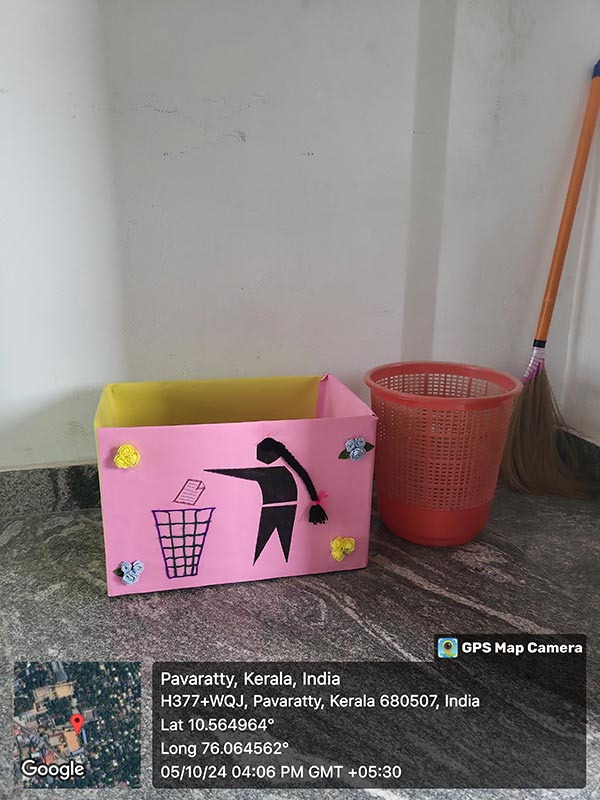
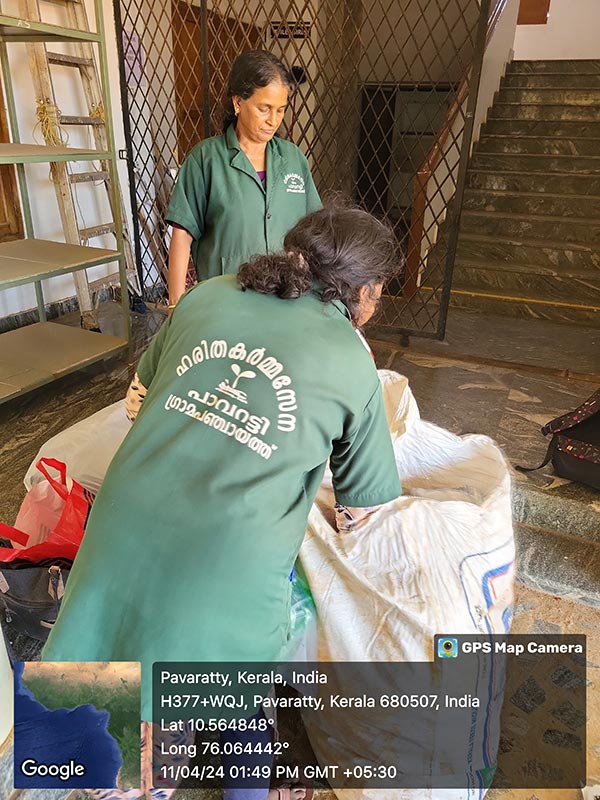
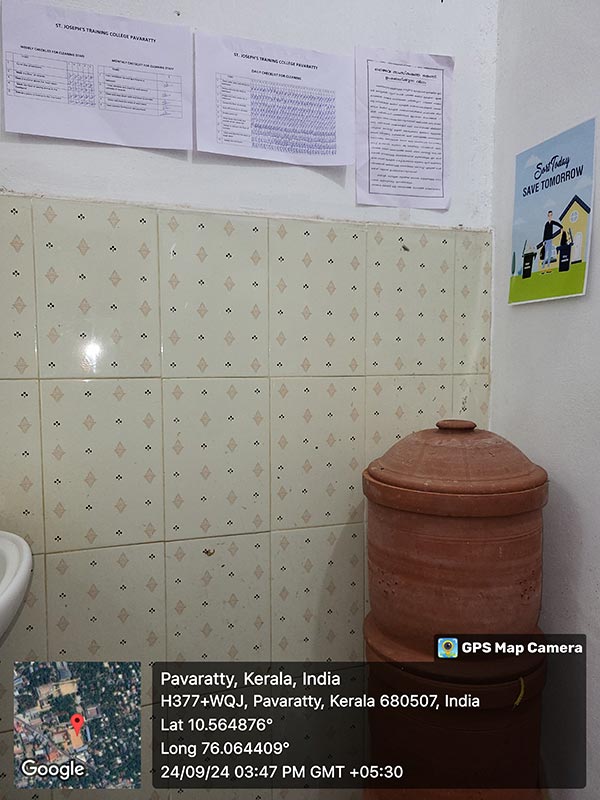
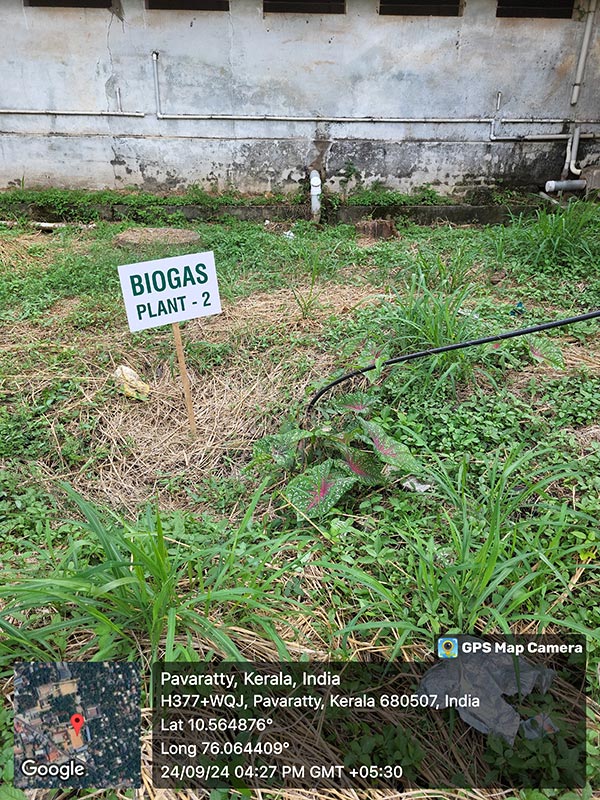
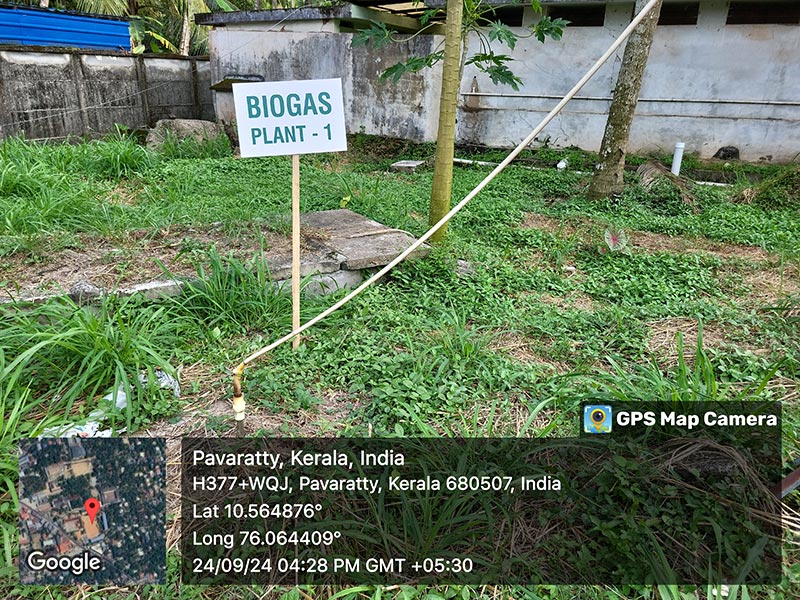
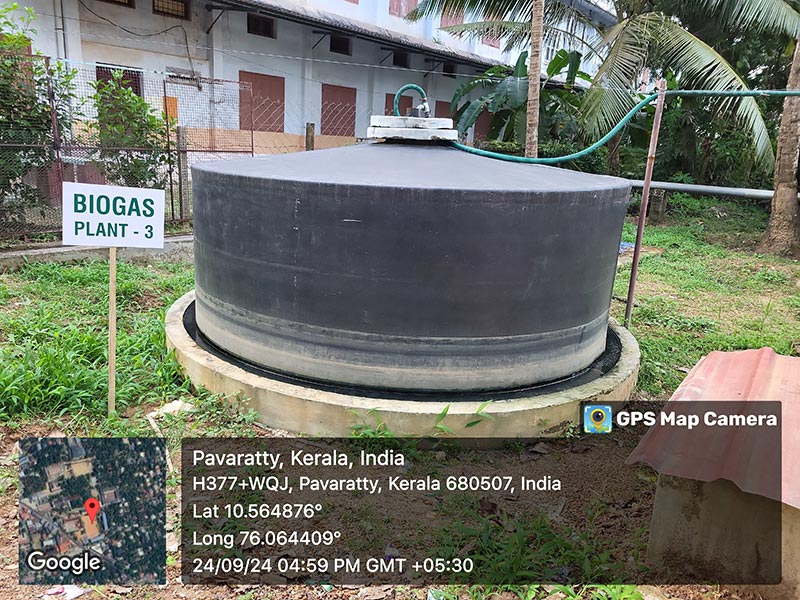

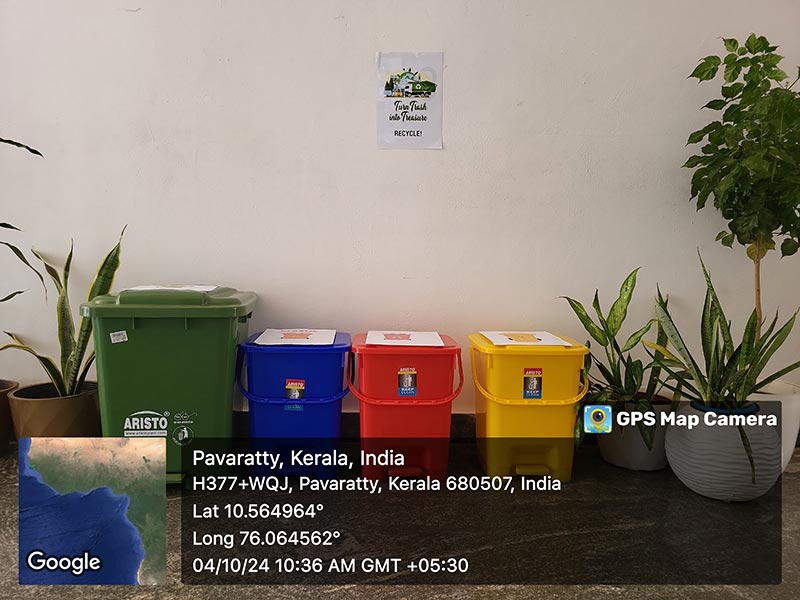
At St. Joseph’s Training College, Pavaratty, biogas plants play a vital role in sustainable waste management and renewable energy generation. By utilizing anaerobic digestion, these plants convert organic waste into biogas, reducing greenhouse gas emissions and providing a clean fuel source.
The college operates two biogas plants, each designed for specific waste streams. One plant processes organic waste from the septic system, while the second handles kitchen waste from St. Joseph’s Higher Secondary School. This systematic approach ensures efficient waste segregation and maximizes energy generation.
The methane-rich biogas produced is supplied to St. Thomas Monastery and Little Flower LP School, Pavaratty, meeting their energy needs and supporting sustainable practices across the institutions. Through this initiative, the college not only reduces waste but also contributes to cleaner energy solutions.
Segregation of Waste
Color-coded Waste Bins have been installed at different locations on campus for segregation of waste at source.
Solid waste is collected and segregated into 5 separate bins for:
- Bio-waste
- Glass and Paper
- Metal-Plastic waste
- E-wastes
Management of Bio-degradable Waste
- Organic waste from toilets and food processed for biogas generation.
- Bio-bins are employed to collect food waste from faculty and students on a small scale, aiming to produce organic fertilizer for the plants within the college premises.
Management of Non-degradable Waste
- Styrofoam glasses and plates are banned.
- Students use only reusable lunch boxes (stainless steel or polystyrene) and steel water bottles.
- Paper waste and cardboards are sold to vendors for recycling at regular intervals.
- Used plastic containers and glass waste are properly collected and disposed for recycling.
- Earth Links conducts Campus Cleaning Drives and helps to segregate waste after college events.
- Students and teachers clean the campus and classrooms regularly.
- Digital Display Boards are used to sensitize students on green protocol.
- A Sanitary napkin incinerator at the college promotes hygiene, reduces environmental pollution, and reinforces the college’s commitment to sustainable practices.
- Haritha Karma Sena takes non-biodegradable waste from the college, ensuring proper disposal and recycling.
Liquid Waste Management
The liquid waste generated on campus, including sewage and wastewater from washbasins and washrooms, is directed to plants through specialized pipes as part of the water management system.
E-Waste Management
- E-waste is collected through designated bins.
- Usable old computers and electronics are shared with sister institutions.
- Non-usable electronic items are collected in a separate room and given to certified e-waste vendors in accordance with e-waste regulations.
.
